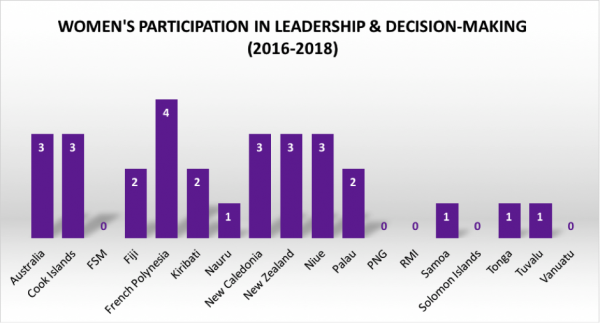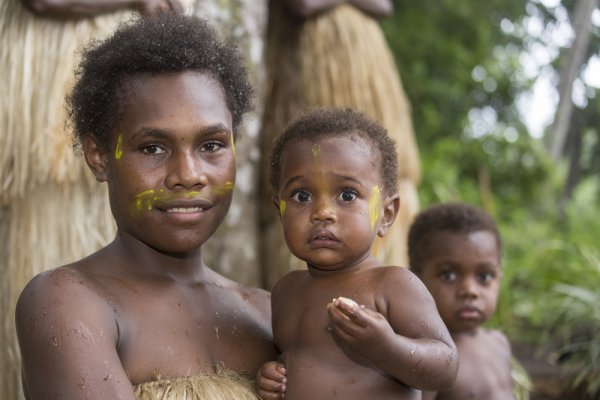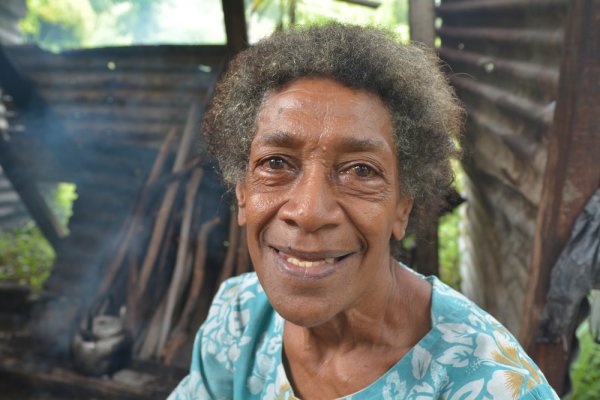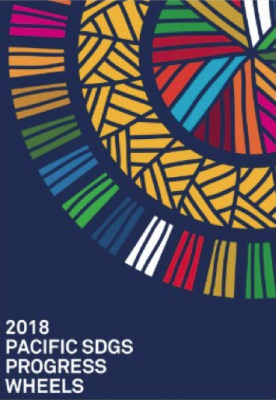Recently, the 2018 Pacific SDG Progress Wheels were launched. They reveal the Pacific progress on the Sustainable Development Goals (SGDs). As the United Nations explains, the goals are interconnected – often the key to success on one will involve tackling issues more commonly associated with another.
The Progress Wheel provides a snapshot of the country and region progress and the current state of available data for each of the SGD targets and indicators for those selected as the most important to the Pacific region – the Pacific Sustainable Development indicators.
The dispersed nature of the Pacific region and the limited availability of resources make it hard to sustain momentum
The report reveals that while some progress is being made, much work remains to be done by the 2030 deadline. Of critical importance, progress against many goals could not be measured due to a lack of methodology or lack of data. In addition, the dispersed nature of the Pacific region and the limited availability of resources make it hard to sustain momentum.

Scores: 0 no achievement against the goal; 1 minimal achievement; 2 some progress; 3 average progress; 4 good progress. Generated from data available here.
One of the measurable goals – women’s participation in leadership and decision-making 2016 – 2018 illustrates the clear differences among the Pacific countries. However, goals such as ending discrimination against women and girls, access to reproductive health and rights and ending violence against women remain immeasurable in many countries due to insufficient data or lacking research methodologies.
The United Nations acknowledges that reaching the goals ‘cannot be done alone’ and the involvement of civil society is required. Yet, the activities led by civil society are often sidelined by state based regional meetings, and always under-resourced.
Emerging grassroots actors and sites if included in their full diversity could help collectively reach the goals. This is evidenced by my research which focuses on the activities of bottom-up Pacific women’s alliances who are advocating for an end to gender inequality in the region.

The state view on meeting gender equality – The Pacific Regionalism Framework
The formal or state based view of Pacific regionalism is found in the Framework for Pacific Regionalism. The Framework mentions both gender equality, and equality for all:
We embrace good governance, full observance of democratic values, the rule of law, defence and promotion of human rights, gender equality and commitment to just societies. We support full inclusivity, equity & equality for all people of the Pacific.
Moving away from its earlier origins as a largely trade and security focused agenda, current Pacific regional strategies and resources are slowly including gender equality as a strategy. The Secretary General of the Pacific Islands Forum noted this shift to inclusivity:
Pacific Regionalism has to be inclusive so that there is access to the breadth of experience and insight that exists in our people. It has to be inclusive to make sure that it impacts on those in our communities who are most in need. It has to be inclusive because only by looking at the whole picture can we identify where we might make the most profound impact.
To bring a greater gender focus for the region, the Pacific Leaders Gender Equality Declaration. (PLGED) emerged from the Pacific Leaders Forum in 2012. PLGED commitments include increasing the representation of women in legislatures and decision making; economic empowerment of women; improving health and education outcomes; and eradication of sexual and gender-based violence.
The Pacific Women Shaping Pacific Development program committed $320m over 10 years to aid the implementation of these commitments. However, the PLGED Trend Report shows that progress has been slow.

Who is included / excluded
The Framework for Pacific Regionalism promises to set the groundwork for all people in the Pacific to ‘walk together’.
However there is an absence of recognition of the diversity or intersectionality of Pacific women in the documents surrounding the formal agenda. There also remains an insufficient inclusion of women in all their diversity at the table of regional decision-making sites.
There is an absence of recognition of the diversity or intersectionality of Pacific women
My interviews with Pacific activists reveal this is especially the case for women of diverse sexual orientation or gender identity. To date, if formal regional documents list gender equality as a priority at all, mentions in official documents have been limited to the binary of men and women. Marginalised Pacific women specificities such as transgender recognition is not included in outcome statements of Pacific Islands Leaders meetings.
Acknowledging and resourcing diverse regional grassroots actors to have a say in the agenda led by regional institutions is the key to making progress

Meeting gender equality – The view from grassroots agents of change
The real agents of change in Pacific regionalism activity mobilising for this progress are the grassroots actors forming alliances and coalitions to maximise their limited resources, amplify their voices and push for greater inclusion and gender equality change in the Pacific. In response to civil society agitation, Pacific leaders have recognised the need for a new inclusive and game changing approach to Pacific regionalism:
…spur us to re-think the form that Pacific regionalism needs to take in order to address our complex contemporary challenges, including poverty, non-communicable diseases, social inequities, gender issues and our unique vulnerabilities and dependencies… At the heart of this new approach is an emphasis on inclusive and robust policy development and implementation…It has to be inclusive to make sure that it impacts on those in our communities who are most in need. It has to be inclusive because only by looking at the whole picture can we identify where we might make the most profound impact.
There is political opportunity for civil society in this new approach in the formal sphere. In response to regional institutions, Pacific feminist civil society will keep advocating for its rights to shape the agenda and engage in the dialogue.
It is crucial that these grassroots efforts are also measured and data collected and included in the Progress Wheels. Working together, state and non-state actors can develop the necessary methodology, leaving no-one behind as per the SDG mantra.

Jane Alver is a PhD Candidate at the University of Canberra. This blog is part of an ongoing research project on Pacific civil society alliances, supervised by Selen Ercan, John Dryzek and Jensen Sass at the Centre for Deliberative Democracy and Global Governance.
Dr Jane Alver is a Senior Research Fellow in the Faculty of Business Government and Law at the University of Canberra. Her research area is civil society activism for gender equality.





